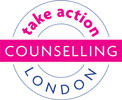In this week’s Problem Page to Victoria Richards “Dear Vix” there is a letter from a woman who describes Mothers Day as the worst day of the year due to the five miscarriages she has experienced. This is such a common but taboo topic leaving women at their most vulnerable so isolated and without the support they need when they are grieving the loss of a child.
The response is brilliant – and emphasises that women are left alone in this grief. I wonder why this is? Why is it not OK to say you have lost a baby and that your dreams are shattered? We need to change this.
Here is her response:
What you’re going through is grief. A miscarriage isn’t just the loss of a collection of cells, it is a loss of hope and promise and all of your dreams for what the future might look like. It is sorrow and heartbreak and anger and despair and rage. It is deeply unfair. And it is a process.
You’re not alone: the pregnancy and baby charity Tommy’s reports that as many as half (50 per cent) of adults in the UK said that they, or someone they know, had experienced pregnancy or baby loss. They estimate that early miscarriages happen to 10 to 20 per cent of pregnancies and late miscarriages happen to 1 to 2 per cent of pregnancies. We don’t know exactly how many women it impacts, but the true extent of unreported miscarriages is likely to be huge and numerous.
While telling people about pregnancy is of course a choice – one that should only ever be made by the pregnant person and no-one else – many still report feeling a level of shame or stigma attached to the experience of miscarriage. Perhaps not telling anyone we’re pregnant when we first find out feels like protection in case something goes wrong, so we don’t have to publicly share our grief; or perhaps we feel unhelped and let down by our stern social “rules”: after all, we’re taught we’re not supposed to tell anyone that we’re pregnant before the 12 week scan, whisper it: for fear of miscarriage.
But why do we abandon women and pregnant people at this crucial, vulnerable, desperate time? Why has it become the “norm” to tell expectant parents that they have to bear this great and terribly heavy secret alone; that they shouldn’t mourn openly, talk about their loss – or even acknowledge that it existed in the first place?
Why do we say that if a pregnancy continues beyond 12 weeks (when research shows that your risk of having a miscarriage goes down dramatically), you are allowed to be open about your feelings, but before that, it must be quashed and ignored?
It is this reticence to face grief head-on, our collective failure to understand the precariousness of early pregnancy – and to appreciate and recognise the feelings of those affected by miscarriage – that I think exacerbates the feelings you are experiencing now. And it has the inverse effect, sadly, of increasing our obliviousness to those who feel particularly sensitive at this time of the year.
What I’d like you to do is buck the trend: to validate your grief. Look at it head on if you can; treat yourself with the same compassion you’d reserve for a beloved friend. Do all the practical things you would advise someone does when they experience a huge and obliterating loss. Buy yourself flowers, get bed-rest, sign yourself off work if you need to. Lean on your mum and on those who do lean over and touch your arm and say they understand this is hard for you. Resist the urge to diminish and reduce your experience. Thank them and echo it back: Yes, it is very hard.
Also, importantly, give yourself permission to heal and grieve in private – to not go to that baby shower. To congratulate someone quietly, but to not feel forced to prostrate yourself at the altar of overt displays of parenthood. To decline politely and lovingly – to say you wish them the very best, but that this is hard for you.
This is hard for you. It’s time to respect and honour that. To request a baby loss certificate, go to gov.uk
(Source: Mother’s Day is the hardest day of the year, for one massive reason: The Independent 27th March 2025)
